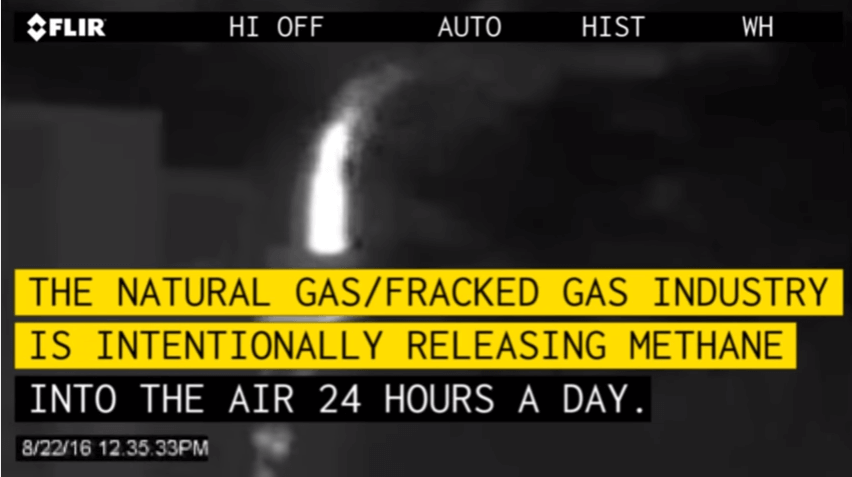A new study by the David Suzuki Foundation reveals methane emissions from B.C. oil and gas operations are at least 2.5 times higher than those reported by the B.C. government. The groundbreaking research shows that, rather than serving as a ‘clean’ transition fuel, fracked gas makes it harder for Canada to meet its climate change commitments.
The study, conducted in partnership with St. Francis Xavier University, is the first comprehensive, ground-based measurement of methane emissions in Canada.
For three years, scientists conducted emission-monitoring surveys of public roads in the area surrounding 1,600 well pads and facilities — the majority of which use hydraulic fracturing — near Montney, in northeastern B.C.
Researchers discovered that the B.C. government’s estimates of methane pollution, which stem from self-reporting by the oil and gas industry, were widely inaccurate and had completely missed more than 50 per cent of the province’s methane emissions.
*video footage of unreported methane emission in BC*
While the B.C. government reports 78,000 tonnes of fugitive methane per year from operations in the province, the new research reveals that B.C.’s Montney region alone leaks more than 111,800 tonnes of methane into the air every year. The Montney gas formation represents 55 per cent of total gas production in B.C.
Over a 20-year period, methane is 84 times more potent as a climate pollutant than carbon dioxide. Leading scientists estimate that methane is responsible for 25 per cent of the changes we’ve already observed in Earth’s climate.
Based on this latest science, the oil and gas sector is the largest source of climate pollution in B.C., surpassing commercial transportation. The researchers say their findings challenge claims that fracked gas is ‘clean’ or a useful transition fossil fuel.
“Our peer-reviewed research shows the true magnitude of Canada’s methane pollution problem is much bigger than previously estimated by industry and government,” Ian Bruce, the David Suzuki Foundation’s director of science and policy, said in a news release.
“Now that we know the extent of the problem, the David Suzuki Foundation is calling on the federal government to take a responsible approach by quickly enacting strong regulations and ensuring industry follows them.”
In light of this new research, the David Suzuki Foundation recommends the federal government:
- Commit to eliminating methane pollution from the oil and gas sector by 2030.
- Re-commit to the original plan of enacting new regulations in 2018, with full implementation by 2020.
- Enact national regulations requiring quarterly leak detection and repair, capping or capture of existing emissions, and transparent reporting.
- Update climate pollution data to account for higher methane pollution emissions than previously estimated.
- Promote the use of existing full methane capture technologies, and avoid flaring.
-30-
For more information, see:
- Download the Suzuki Foundation’s complete report: Mobile measurement of methane emissions from natural gas developments in Northeastern British Columbia, Canada.
- Download the Suzuki Foundations Media Backgrounder.
- Watch the Suzuki Foundations video footage of unreported methane emission in BC.
- Learn more about the Conservation Council’s work on shale gas in NB.
- Read our report: A climate action plan for New Brunswick.
- Learn more about the Conservation Council’s work on climate and energy solutions here.

